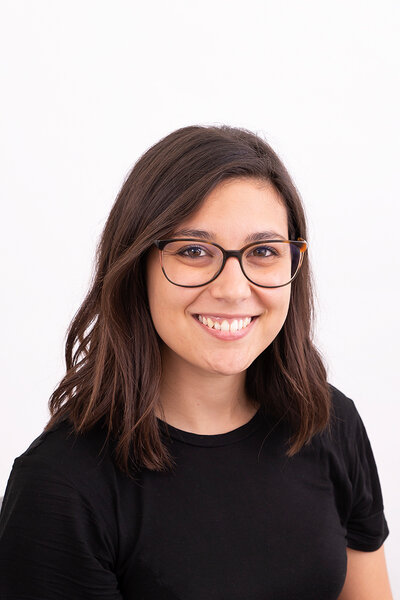Giulia Iacono

My Name is Giulia Iacono, I'm Italian and I'm a PhD student at Sanquin, The Netherlands (ESR4).
Expectations
My work concerns the improvement of an in vitro protocol to obtain a large scale production of red blood cells for transfusion, starting from PBMC. Particularly, my project focuses on the purification of reticulocytes obtained through cell culture. It has been shown that at the end of the differentiation process it is possible to find in our culture system three different cell populations: nucleated red blood cells (nRBC) cells which still have to go through the enucleation process, pyrenocytes (the nuclei of the cells) and reticulocytes or enucleated red blood cells (eRBC) which are our cells of interest.
Generally, in vivo, pyrenocytes are depleted through macrophages, bus since in our cultures there are any macrophages, it becomes necessary to find a way to remove this cells from our final product.
The idea of the project comes from this background. We would like to identify a protein (or even more than one) only expressed on the pyrenocytes and nRBC surface and to build an aptamers that can bind the target protein in a very specific way. The aptamer then will be associated with a selection structure, such as a filter or a column in order to purificate eRBC from pyrenocytes and nRBC that will bind to the aptamer.
Updates
In this first year of my PhD I had the opportunity to familiarize with the environment of Sanquin, and to get increasingly involved in my projects. The final goal of our group is to optimize a protocol for a large scale production of red blood cells for transfusion. In order to do this we are trying to move from static condition (dishes) to dynamic (bioreactors). As part of this big project I am mainly involved in the study of the effects of shear stress in erythroblasts differentiation and in the development of a selection system to remove pyrenocytes and erythroblasts from reticulocytes, our final product.
Due to COVID-19 crisis it was difficult to attend conferences and to meet the other ESRs of the network in real life, but we adapted to these conditions and we tried to communicate an collaborate in different ways. We have ESRs meeting monthly, and this allow us to share our improvements and deepen more in other ESRs' projects to establish new collaborations. Most of our projects are connected to each other's and I found these meetings very helpful. We also have a WhatsApp group that we regularly use to communicate and share experiences. All of this helps a lot to have the feeling of the network even during the pandemic time.
As part of the network I had the chance to collaborate with another ESR who came to Sanquin for a secondment. We worked together on her project and this allowed us to share even more information about our lab work and to see the different technics and facilities that are present in different institutes of the network. We also spent some time together which helped to know each other better. I think secondments are a very good chance to amplify our knowledges from scientific and personal point of view. I didn't have the opportunity to do a secondment yet, but we're planning some for the coming months.
I am also lucky to stay at Sanquin with another ESR of the network. This allow us to discuss about our projects and give each other suggestions in real life. Since we are in the same institute, this could be also good for future collaborations. Staying in the same place was very helpful at the beginning of our PhD. Indeed due to the COVID-19 conditions it was hard to start a new journey and have a member of the network very close to me helped a lot to feel part of it.
The evidence network is allowing me to be involved in multidisciplinary environment and to have contacts with people from different countries and different backgrounds. I think this can enrich me as scientist but also as person.
